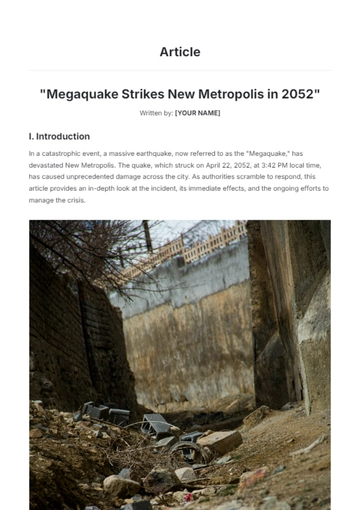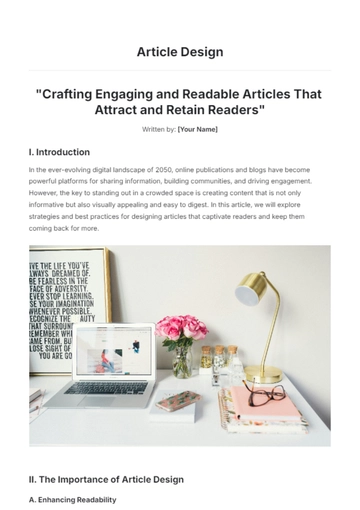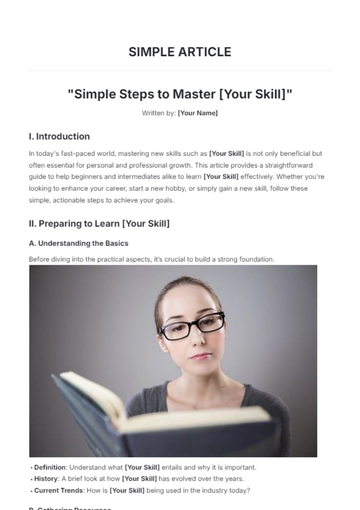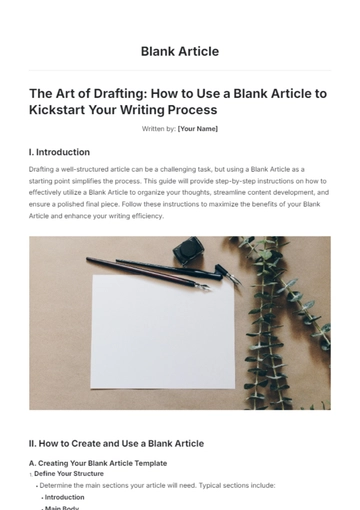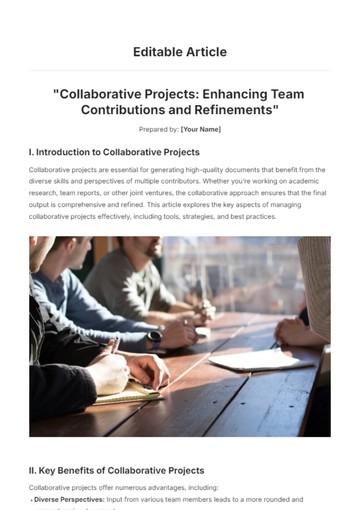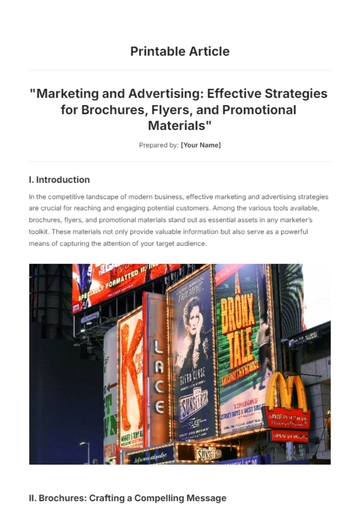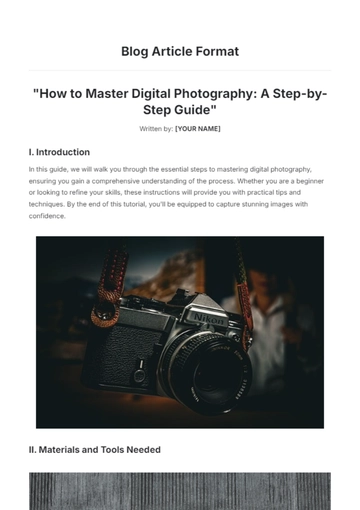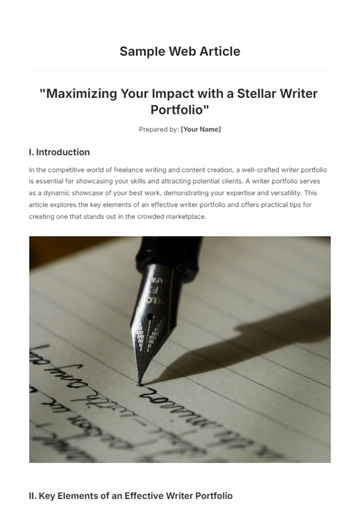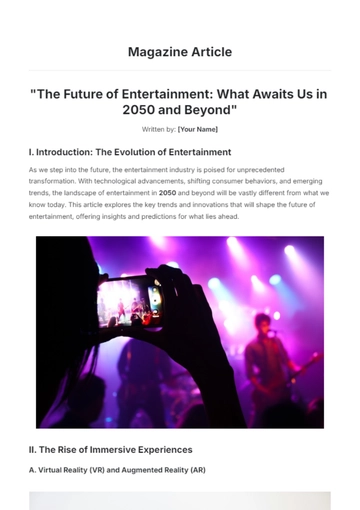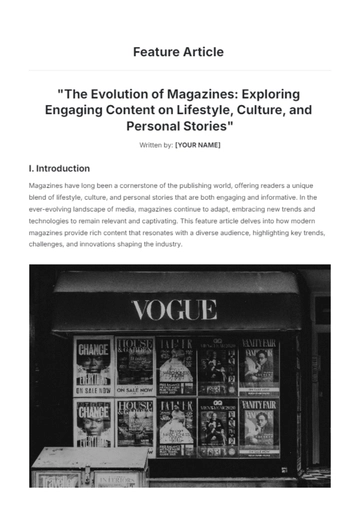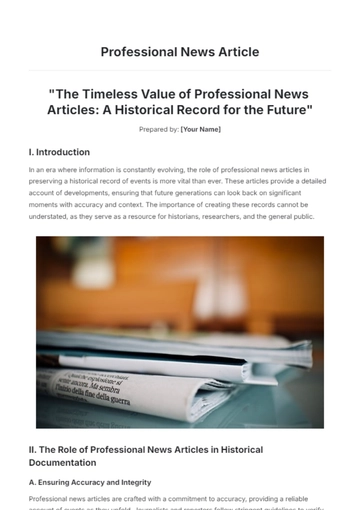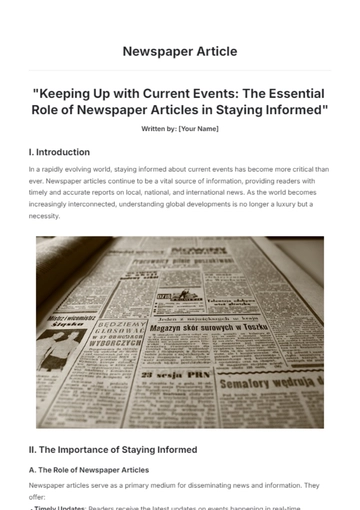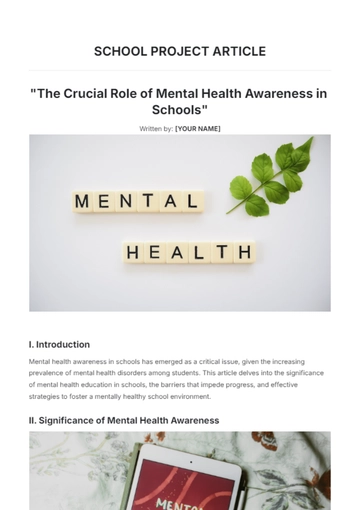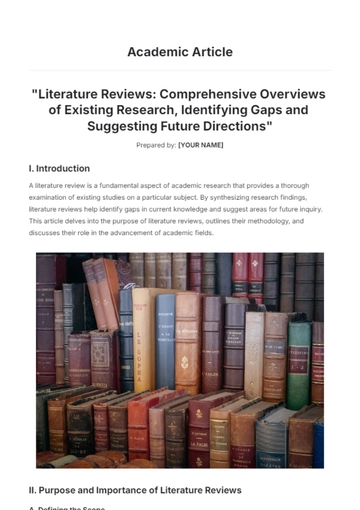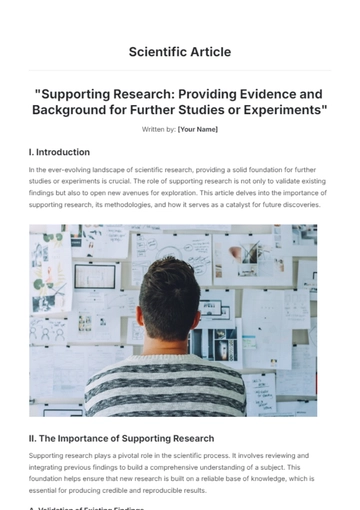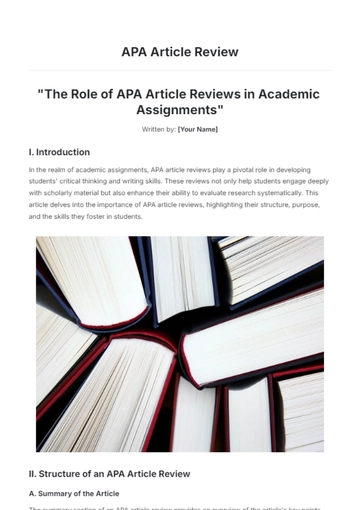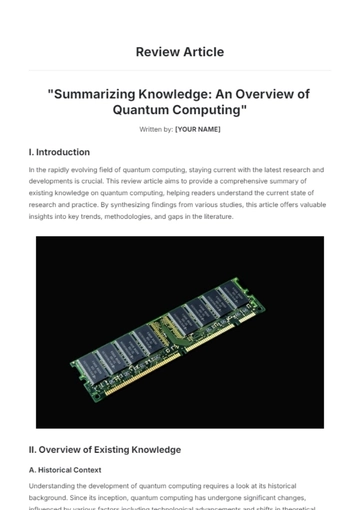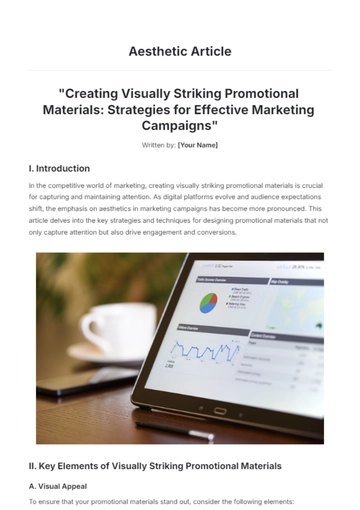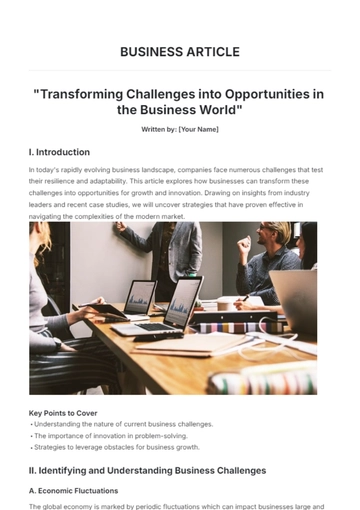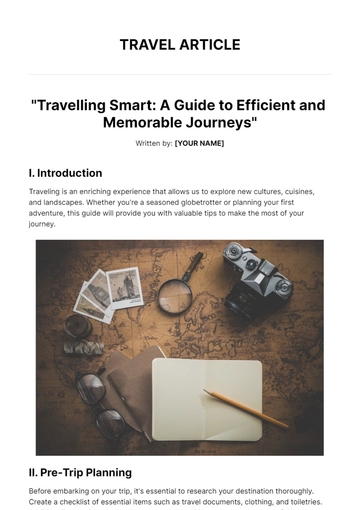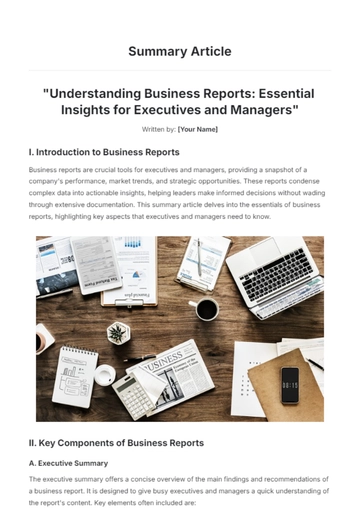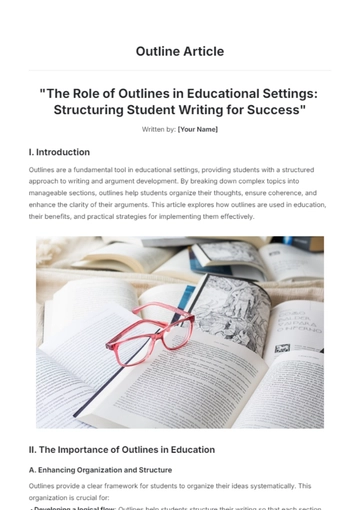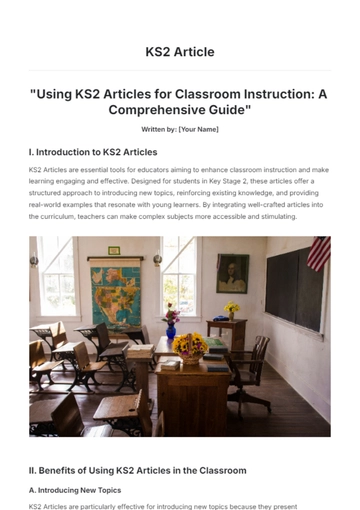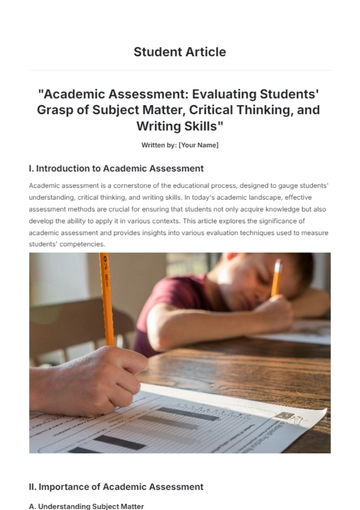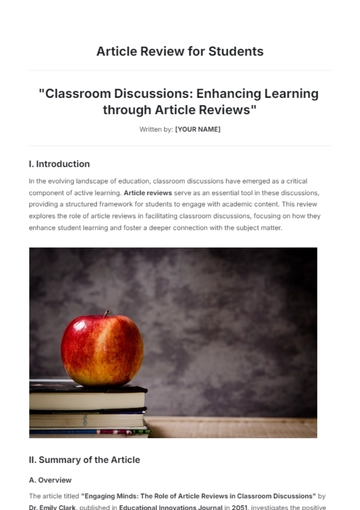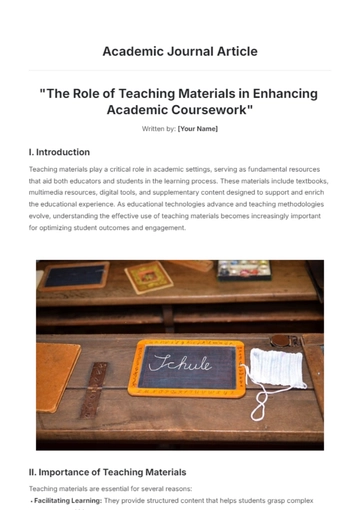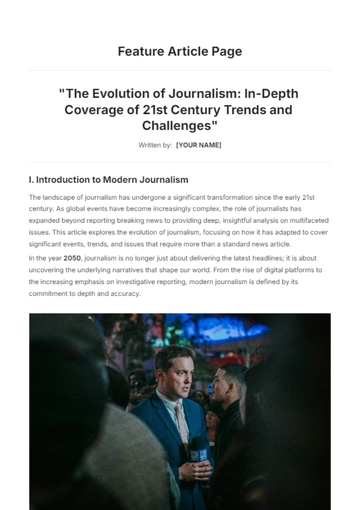Free Journal Article Review
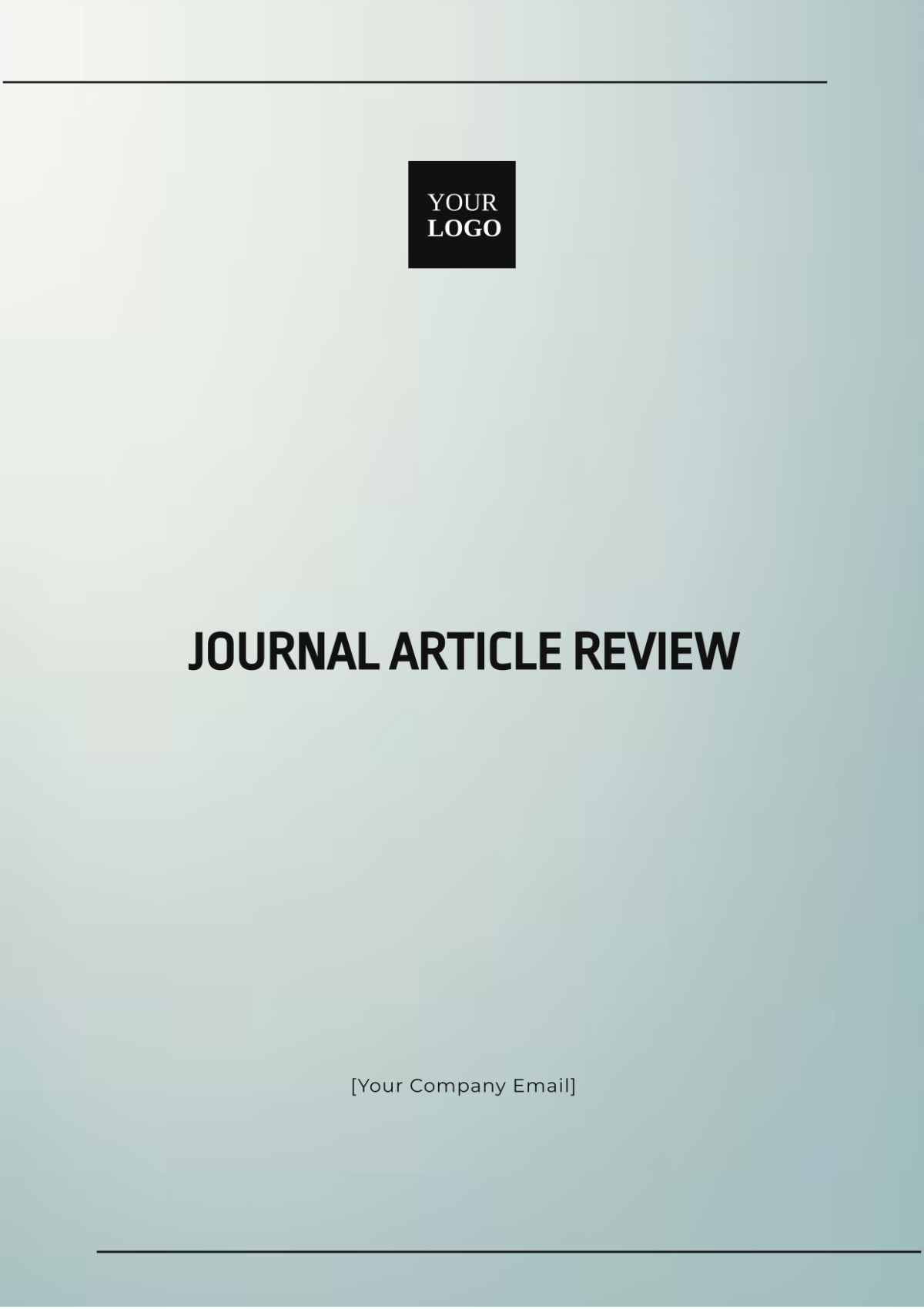
Written By: [Your Name]
Date: [Date]
Introduction
The purpose of this review is to critically evaluate and summarize the scholarly article "The Impact of Social Media on Academic Performance: A Comprehensive Analysis," published in the Journal of Educational Research. This article review aims to assess the article's content, methodology, and contributions to the field. By providing insightful opinions on the strengths and weaknesses of the research, the review aims to help readers contextualize the article within the broader academic discourse. Additionally, the review includes recommendations for further research or improvements, offering a concise understanding of the article’s relevance and significance.
Summary of the Article
The article "The Impact of Social Media on Academic Performance: A Comprehensive Analysis" explores the relationship between social media usage and students' academic performance. It employs a mixed-methods approach, combining quantitative surveys with qualitative interviews, to gather data from a diverse sample of high school and college students. The authors aim to provide a nuanced understanding of how varying levels of social media engagement can influence educational outcomes.
Content Evaluation
The content of the article is well-organized, beginning with a thorough literature review that sets the stage for the current study. The authors effectively highlight the gaps in existing research and justify the need for their study. The subsequent sections describe the theoretical framework, research design, data collection methods, and findings clearly and coherently. The discussion offers a balanced interpretation of the results, linking them to the reviewed literature and discussing practical implications for educators and policymakers.
Methodology Assessment
The mixed-methods approach is one of the significant strengths of the article. The quantitative data provides a broad overview of social media usage trends among students, while the qualitative interviews offer in-depth insights into individual experiences and perceptions. The sampling methods are adequately described, and the statistical analyses are appropriate for the research questions posed. However, the study could be strengthened by a more detailed discussion of potential biases and limitations, such as the reliance on self-reported data and the cross-sectional nature of the study, which limits causal inferences.
Contributions to the Field
The article makes several valuable contributions to the field of educational research. Firstly, it provides empirical evidence on the complex relationship between social media usage and academic performance, a topic of growing importance in the digital age. The study also contributes to methodological advancements by demonstrating the benefits of a mixed-methods approach in educational research. Furthermore, the practical recommendations derived from the findings offer actionable insights for educators and policymakers aiming to mitigate the potential negative impacts of social media on students' academic achievements.
Strengths and Weaknesses
Among the strengths of the article are its comprehensive literature review, robust methodological approach, and practical implications. The mixed-methods design enriches the findings and enhances the reliability of the conclusions drawn. However, the article also has weaknesses, including the limited exploration of potential biases and the lack of diversity in the sample, which might affect the generalizability of the findings. Future research could address these limitations by incorporating longitudinal designs and more diverse populations to validate and extend the current study's findings.
Recommendations for Further Research
Based on the strengths and weaknesses identified, several recommendations for further research emerge. Future studies should consider using longitudinal designs to examine causal relationships between social media usage and academic performance over time. Additionally, expanding the sample to include students from different cultural and socio-economic backgrounds could enhance the generalizability of the findings. Exploring the mechanisms underlying the observed relationships, such as the role of specific social media platforms or types of engagement, could provide deeper insights into how social media influences academic outcomes.
Conclusion
In conclusion, "The Impact of Social Media on Academic Performance: A Comprehensive Analysis" is a commendable contribution to the field of educational research. The article offers a detailed examination of an increasingly relevant topic, using a robust methodological approach to yield valuable insights. While the study has certain limitations, these do not detract significantly from its overall contributions. This review provides readers with a clear understanding of the article’s relevance and significance, highlighting its strengths and offering constructive suggestions for further research. By situating the article within the broader academic discourse, this review underscores the importance of continued exploration in this vital area of inquiry.
- 100% Customizable, free editor
- Access 1 Million+ Templates, photo’s & graphics
- Download or share as a template
- Click and replace photos, graphics, text, backgrounds
- Resize, crop, AI write & more
- Access advanced editor
The Journal Article Review Template from Template.net is a valuable tool for conducting thorough and professional article reviews. This editable and fully customizable template allows you to adapt your review to specific journal guidelines and standards. Simplify the review process with a structured format that enhances clarity and depth. Ideal for academics and reviewers seeking a flexible and polished solution for journal article evaluations.
